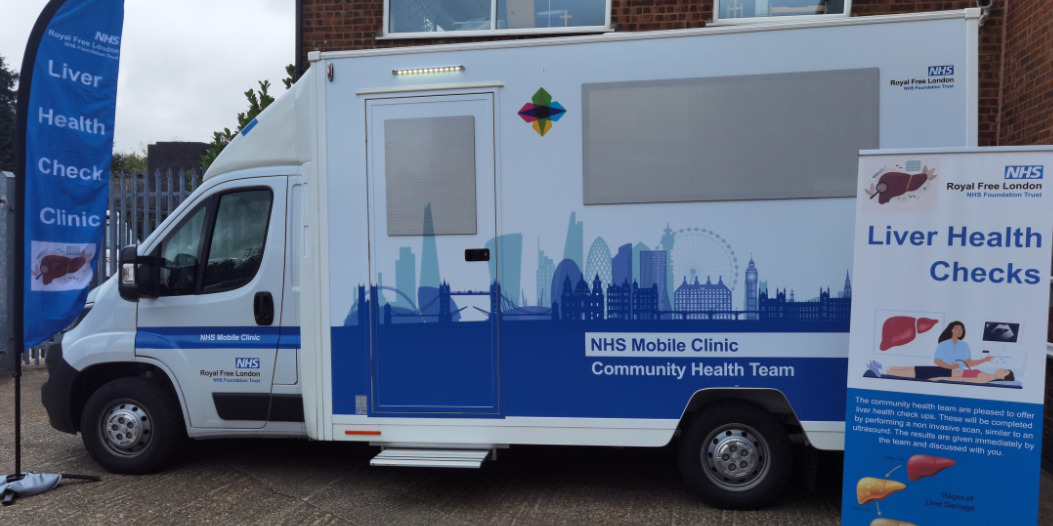
Thousands more could be referred for liver cancer checks with the expansion of the NHS’s community liver health check programme, which provides mobile liver scanning trucks across regions of England.
Over the last two years, the number of these scanning teams has almost doubled, with 20 roaming teams now offering scans to communities across England, up from 11 at the pilot’s inception.
More than 112,000 people have had a fibroscan of their liver, and almost 8,500 (8,470) have been referred on for vital liver cancer checks since the programme began.
'As convenient as possible to get tested'
Mobile trucks can perform scans for cirrhosis or advanced fibrosis, which increases the risk of liver cancer. If detected, patients with damaged livers can be referred for further tests.
The programme is targeting at-risk groups in the community, including people with high levels of alcohol consumption, a current diagnosis or history of past viral hepatitis, or non-alcoholic liver disease, as these factors increase the risk of developing liver cancer.
Moving across different areas allows the trucks to offer their services in GP practices, recovery services, food banks, diabetes clinics, sexual health clinics and homeless shelters.
Some areas have also taken the scanning vehicles to football matches, workplaces and outside supermarkets, making it as convenient as possible for people to get tested.
'Chances of successful treatment are much higher'
NHS teams delivering the scans are working closely with the local community and charities to identify people most in need of tests and support, and some have also partnered with GP practices to scan people with conditions including type 2 diabetes and obesity.
NHS national cancer director, Professor Peter Johnson, said: “By reaching out into communities and making it easier for people to get checked, we will catch more cancers at an early stage, when the chances of successful treatment are much higher, and this can save lives.
“This programme has seen thousands more people referred for important further tests, allowing them to get vital treatment sooner alongside the support they need from the NHS to lead healthier lives. It’s a great example of the health service increasing its focus on prevention, as set out in the 10-year health plan.”
In some areas, peer support workers who have lived experience of liver disease are also offering support to help people attend appointments.
'It's crucial these checks continue'
Liver cancer is the fastest-rising cause of cancer-related deaths in the UK. The most common primary liver cancer is hepatocellular carcinoma (HCC), which makes up 85 per cent of all liver cancers.
Pamela Healy OBE, chief executive of the British Liver Trust, said: “We’re delighted to have worked closely with NHS England on this programme, which has successfully helped thousands of people access the care and support they need to protect their liver health and reduce their risk of liver cancer.
“Liver cancer often develops silently, and many people are only diagnosed at a stage when treatment options are limited. We know that the biggest risk factor is pre-existing cirrhosis, which is why detecting liver disease earlier is so vital. It’s crucial that these checks continue across communities to reach even more people at risk.”
(Image: NHS mobile scanning truck, via the Royal Free London NHS Foundation Trust)
